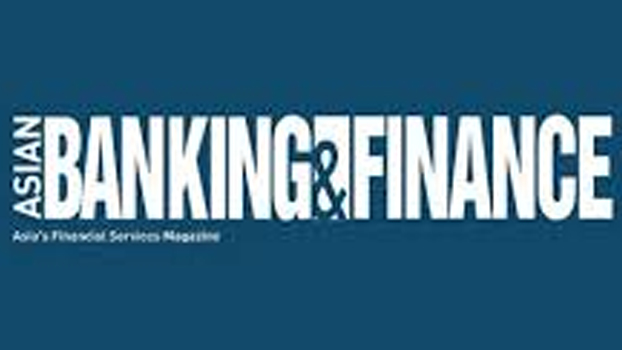Islamic banking plays notable role to spur growth, job creation in BD
Asian Banking & Finance, Singapore underscores corporate governance of Shari’ah based Banking in BD

Banks and other financial intermediaries are the heart of the economy of the country. The deterioration of their asset portfolios–largely due to distorted credit management–was one of the main structural sources of the crisis. To a large extent, this problem was the result of poor corporate governance in the countries’ banking institutions and industrial groups. This poor corporate governance, in turn, was very much attributable to the relationships among the government, banks, and big businesses as well as the organizational structure of businesses. Governance of banking institutions deserves separate attention for three basis reasons: firstly, risk management and other internal control are much more important in the banking sector than in other sectors, secondly, governments usually provide safety nets to banks and heavily regulate them in consideration of the importance of banks and the externality associated with banking sector stability and thirdly, information asymmetry is much more serious in banking than in non-financial industries due largely to the inter-temporal nature (involving a promise to pay in the future) of typical financial contracts and the increasing complexity of financial products. This calls for higher standards of governance including disclosure and transparency.
In Bangladesh, there is robust growth in Islamic banking industry. Islamic banking industry in Bangladesh has been highly contributing to spur economic growth and generate employment in the country. Islamic banking industry is contributing around 25% market share and around 30,000 employees have been playing a very dominant role in mobilizing deposits and financing in the real sector industries, services and other key sectors of the economy and collecting about a one-third portion of total foreign remittances in Bangladesh.
Each of the practices in Islamic finance is anchored on a particular belief – “money is not an earning asset in and of itself”. The only way to understand the system is to consider it in view of Islamic outlook towards the state’s role, economic and social justice, distribution of wealth, and most importantly ethics. Islam unequivocally abhors materialism, greed, consumerism, exploitation, and extortion in any form or to any degree by anybody, particularly the owners of capital. Quran, the holy principal book for Muslims, contains severe warnings against greed and avarice in several places.
Asian Banking and Finance (ABF), a Singapore based influential business journal of Asia Pacific region has published a report recently titled “Why is good corporate governance a must to operate Shari'ah based Banking in Bangladesh?”.
The report referred recent webinar arranged by the Institute of Chartered Secretaries of Bangladesh (ICSB) on "Islamic Banking and Financing- an emerging need of promoting corporate governance in the banking sector” where Islamic scholars emphasized the weaknesses of the country’s present banking system and affirmed that the current predicament of the country’s banking sector is mostly because of the implementation of poor corporate governance. The speakers emphasized the Organization for Economic Co-operation and Development (OECD), the practice and weakness of corporate governance and it has been emphasized how Shari’ah based governance practice can help with the improvement of the corporate governance practice in banking institutions.
The report mentioned that despite being within a demanding financial environment, Islamic finance, as we have noticed, has made notable progress transcending beyond the economies of Islamic countries and regions. Islamic banking industry in Bangladesh currently has one fourth of the total banking assets. This market share allows the country to enjoy systematic importance at the domestic level. Bangladesh ranks 10th among the leading 35 jurisdictions considering the total market share of Shari’ah based Islamic banking.
In the report, Kazi Akramuddin Ahmed, Chairman of Standard Bank Limited, Bangladeshopined, “We are in transformation process for conversion into full Islamic Bank and it is needed to gather proper knowledge & wisdom by the concerned officials to run the bank full compliance under Shari’ah in the country”.
“Shari’ah based banking institutions in Bangladesh have pivotal role to serve the unprivileged people of the country who are in extreme poverty level and the banks key focuses and products are designed considering the human necessities towards development of projects who caters the ultimate need of the society including employment opportunity”, also stated by Kazi Akramuddin in the report. In is noteworthy to mention that Standard Bank Limited (SBL) in Bangladesh has already been converted into a Sharia’h Based Islami Bank from January 2021.
The Islamic banking is seeing impressive growth in Bangladesh and the future of the Islamic banking systems is so bright. The globally-booming Islamic finance is making strides and gaining popularity in Bangladesh, with experts predicting that the Shariah compliant industry will continue in steady steps to become the mainstream banking system in Muslim South Asian nation.
“Even amid the existence of limitations, the prospect and potentiality of Islamic banking in Bangladesh are still high. The successful initialization of Islamic banking operations has made it evident that interest-free banking is a feasible idea.”, the report said. In the conclusion of the report, it has been mentioned, “the world in the 21st century is quickly evolving into a fast-paced digitalized economy at the magnitude and scope beyond imagination.”
Md. Touhidul Alam Khan, FCMA, CSRA, Additional Managing Director & Chief Risk Officer of Standard Bank Limited authored the said report who is also contributor of Asian Banking & Finance (ABF), Singapore.




